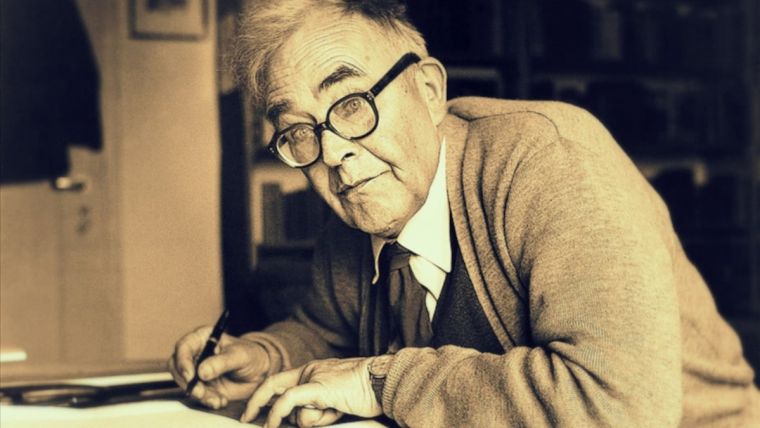'Joy is the simplest form of gratitude': 12 quotes from legendary theologian Karl Barth

Today is the birthday of Karl Barth, a Swiss pastor, enigmatic thinker, and arguably the greatest theologian of the 20th century.
A prolific writer, his theology stood as a stark challenge to the prevailing 19th century liberal theology of his day. While some wanted to reshape theology in light of post-enlightenment intellectual advances, Barth emphasised humankind's utter reliance on God's revelation – captured ultimately in the person of Jesus Christ – for knowledge of God and reality.
Barth's distaste at human 'religion', which he saw as an attempt to 'possess' God, was vindicated by the German church's support of German war aims in 1914. In capitulating to the Kaiser, Barth saw the dangers of a church indistinct from the human culture around it.
In World War Two, Barth was part of the Confessing Church, which stood boldly against the spectre of Nazism.
His iconic, multi-volume work Church Dogmatics displays his mighty intellect, but he also had a pastoral heart and a simple message at the heart of his theology. Barth was once asked after a lecture in Chicago if he could sum up his theology in one sentence. He replied in the words of a song his mother had taught him: 'Jesus loves me, this I know, for the Bible tells me so.'
Here are 12 quotes from Karl Barth.
1. No one can be saved - in virtue of what he can do. Everyone can be saved - in virtue of what God can do.
2. To clasp the hands in prayer is the beginning of an uprising against the disorder of the world.
3. Laughter is the closest thing to the grace of God.
4. This much is certain, that we have no theological right to set any sort of limits to the loving-kindness of God which has appeared in Jesus Christ. Our theological duty is to see and understand it as being still greater than we had seen before.
5. The theologian who labors without joy is not a theologian at all. Sulky faces, morose thoughts and boring ways of speaking are intolerable in this field.
6. As ministers we ought to speak of God. We are human, however, and so cannot speak of God. We ought therefore to recognize both our obligation and our inability and by that very recognition give glory to God
7. Joy is the simplest form of gratitude.
8. Holy Communion is offered to all, as surely as the living Jesus Christ is for all, as surely as all of us are not divided in him, but belong together as brothers and sisters, all of us poor sinners, all of us rich through his mercy. Amen.
9. Here the hidden, the eternal and incomprehensible God has taken visible form. Here the Almighty is mighty in a quite definite, particular, earthly happening. Here the creator has become creature and therefore objective reality.
10. Heaven and earth, nature and man, comedy and tragedy, ... the Virgin Mary and the demons...Mozart simply contains and includes all this within his music in perfect harmony. This harmony is not a matter of "balance" or "indifference" – it is a glorious upsetting of the balance, a turning in which the light rises and the shadows fall, in which the Yes rings louder than the ever-present.
11. Everyone who has to contend with unbelief should be advised that he ought not to take his own unbelief too seriously.
12. When we are at our wits' end for an answer, then the Holy Spirit can give us an answer. But how can He give us an answer when we are still well supplied with all sorts of answers of our own?











